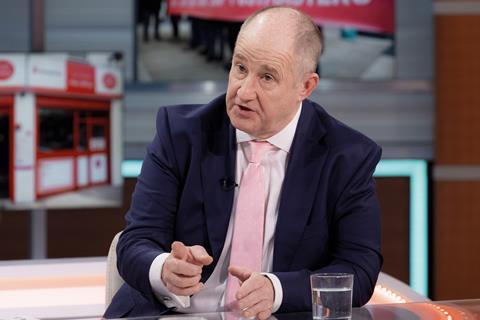As the government announced a bill overturning all convictions based on Post Office Horizon data, some lawyers voiced their unease at ministers setting what will be a monumental legal and constitutional precedent
So much about the Post Office Horizon scandal has been described as unprecedented that the cliche has lost much of its resonance. But it really was a landmark legal moment when prime minister Rishi Sunak announced in parliament this week that his government would introduce a bill to overturn all convictions based on Horizon data.
The bill, which will have cross-party support, was announced after the government reportedly held discussions with senior judges about the quickest way to ensure convicted sub-postmasters could clear their names.
Even so, the principle of parliament overriding decisions of the court – however flawed they now appear – is one that sits uneasily with many.
Even Kevin Hollinrake MP (pictured), the minister tasked with fleshing out the detail in parliament, acknowledged the potential ‘imperfections’ of such legislation. ‘The government completely recognise the importance of an independent court system and judiciary, so the recommendation raises important issues of constitutional principle,’ he said. ‘This is therefore not a decision we can take lightly. It also creates the risks of a different sort of injustice.’

He accepted that a Post Office worker who had stolen money could be exonerated as part of the group order. Hollinrake said the government did not want guilty people walking away with the £600,000 for which properly exonerated victims will automatically be eligible, but this consideration has been outweighed by the ordeal of putting hundreds of people through the appeal procedure.
‘We cannot turn this into an administrative exercise,’ added the minister. ‘All we ask is that as part of their claims for compensation, postmasters sign a statement to the effect that they did not commit the crimes of which they are accused. Anyone subsequently found to have signed such a statement untruthfully will be putting themselves at risk of prosecution for fraud.’
'Such an exceptional scheme can only be justified in these very extraordinary circumstances. It cannot be treated as a precedent or justify further government intervention in the independence of our justice system'
Nick Emmerson, Law Society
Sir Bob Neill MP, chair of the Commons justice select committee, called for details of discussions with the senior judiciary about alternative routes to clearing victims’ names. He said the bill would be ‘novel and constitutional’ and asked for parliament to be able to scrutinise the legislation.
Former lord chancellor Sir Robert Buckland MP called at the start of this week for the government to put primary legislation before parliament. He said: ‘The key point to bear in mind is that, owing to the number of people who have refused to come forward, parliament has an obligation to act.’
The Law Society welcomed the government’s proposal to exonerate all victims of the scandal, which has dominated the news agenda following the ITV drama Mr Bates v The Post Office – but warned against setting a precedent.
Society president Nick Emmerson accepted that ministers carefully considered the difficult legal and constitutional issues. But he added: ‘Such an exceptional scheme can only be justified in these very extraordinary circumstances. It cannot be treated as a precedent or justify further government intervention in the independence of our justice system.’
The Bar Council also cautioned the government against setting a legal and constitutional precedent. Bar chair Sam Townend KC said: ‘There are many lessons to be learned from the Post Office scandal. Not only is there a clear case for parliament to review the ability of certain corporate bodies to bring private prosecutions, but it also highlights the vital importance of access to legal advice and the urgent need to repair confidence in the justice system.’
Meanwhile one lawyer suggested that the promised ‘act of exoneration’ might pave the way for a return of the bill of attainder, a process defunct since the 18th century. ‘This convicts by act of parliament without any due process and is contrary to the rules of natural justice,’ Michael Sternberg KC wrote in a letter to The Times.
Under the legislation, victims of the Post Office scandal will receive more compensation than they had expected, but in many cases less than they are demanding. The 555 individuals in the group litigation, the focus of the ITV drama, were offered a £57m settlement, £46m of which was swallowed by legal fees and costs, leaving £11m, which worked out at around £20,000 each.
Just 21 of this group have settled their cases with full and final compensation. Hollinrake confirmed that they will be offered an upfront £75,000, but the majority are unlikely to accept that offer and will continue to push for more through their lawyers. Any perception that we may be nearing the end of this shaming episode is fanciful.
This article is now closed for comment.




































15 Readers' comments